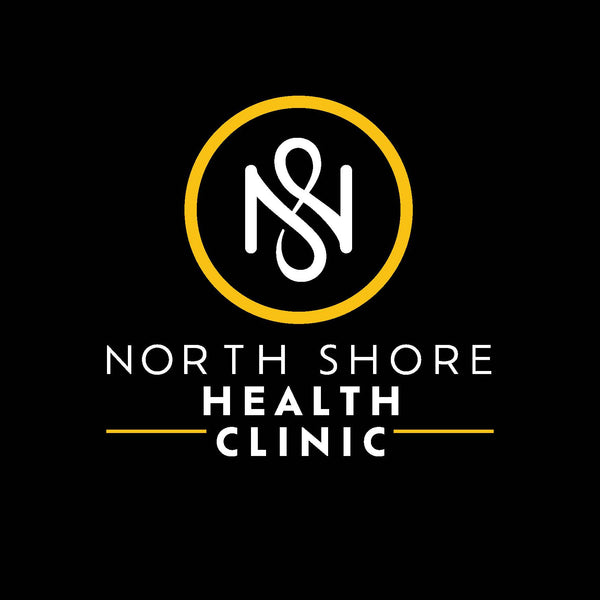Managing a Supraspinatus Tear at North Shore Health
North Shore Health – Comprehensive Rotator Cuff Injury Care
Updated June 2025 | 3 min read
Understanding a Supraspinatus Tear
At North Shore Health, we specialize in the comprehensive care of musculoskeletal injuries, including rotator cuff tears such as supraspinatus injuries. The supraspinatus muscle, located at the top of the shoulder, is essential for initiating arm abduction and maintaining shoulder stability.
A supraspinatus tear—whether partial or full-thickness—is often part of a broader rotator cuff injury and can result from trauma, repetitive overuse, or degenerative changes. This injury can significantly impact shoulder mobility, daily function, and overall quality of life, making timely and effective treatment vital.
Common Symptoms of a Supraspinatus Tear
-
Persistent pain in the top or side of the shoulder
-
Weakness when lifting the arm, especially sideways
-
Limited range of motion and stiffness
-
Pain that worsens at night or during overhead activities
-
Clicking or catching sensation in the shoulder
Evidence-Based Approaches at North Shore Health
Our expert clinicians at North Shore Health apply a multidisciplinary, evidence-based approach to manage supraspinatus tears. We combine physiotherapy and acupuncture protocols designed to promote tissue healing, reduce pain, and restore functional movement.
Physiotherapy Interventions
Physiotherapy is central to restoring shoulder strength, mobility, and function. Evidence supports several approaches in managing rotator cuff injuries, including supraspinatus tears:
-
Manual Therapy: Techniques such as joint mobilizations, scapular mobilization, and soft tissue massage help reduce pain and improve range of motion.
-
Therapeutic Exercises: Gradual, tailored strengthening programs focus on the rotator cuff and scapular stabilizers to restore shoulder control and prevent re-injury.
-
Neuromuscular Re-education: Enhancing coordination and timing of muscle activation helps prevent compensatory movement patterns.
-
Postural and Ergonomic Education: Teaching patients proper posture and activity modifications reduces mechanical stress on the shoulder.
A 2021 study in Journal of Shoulder and Elbow Surgery demonstrated that a structured physiotherapy program significantly improved pain and function in patients with partial-thickness supraspinatus tears.
Acupuncture for Rotator Cuff Injuries
Acupuncture is a valuable adjunct therapy in treating supraspinatus tears and chronic shoulder pain. It targets both the biomechanical and neurophysiological mechanisms underlying pain and inflammation.
-
Local and Distal Needling: Acupuncture points around the shoulder (e.g., LI15, SI9) and along meridians help reduce inflammation, increase blood flow, and relieve muscle tension.
-
Trigger Point Acupuncture / Dry Needling: Targets myofascial trigger points in the deltoid, supraspinatus, and infraspinatus muscles to relieve referred pain and improve muscle recruitment.
-
Electroacupuncture: A 2023 meta-analysis in Complementary Therapies in Medicine found that electroacupuncture significantly reduced pain and improved shoulder function in patients with rotator cuff injuries, particularly when combined with exercise therapy.
-
Endorphin Release & Anti-Inflammatory Effects: Acupuncture has been shown to modulate central pain processing and trigger the release of endogenous opioids, improving pain thresholds and reducing reliance on medications.
Research from Archives of Physical Medicine and Rehabilitation (2022) reported that acupuncture, when used alongside physiotherapy, provided faster pain relief and improved shoulder range of motion in patients with chronic rotator cuff tendinopathy.
Comprehensive Treatment Plan at North Shore Health
At North Shore Health, we create an individualized treatment plan for each patient with a supraspinatus tear:
-
Comprehensive Assessment: Detailed history, clinical examination, and imaging review to assess tear severity and functional limitations.
-
Integrated Care Approach: Personalized programs combining physiotherapy, acupuncture, and rehabilitation strategies tailored to your goals.
-
Progressive Rehabilitation: From pain relief to functional restoration, we guide you through each stage of recovery.
-
Education & Prevention: Empowering you with tools for shoulder care, injury prevention, and long-term health.
-
Ongoing Support & Monitoring: Regular reviews and adjustments to your plan ensure optimal outcomes and safe return to activity.
When to Seek Professional Help
If you’re experiencing persistent shoulder pain, weakness, or difficulty performing daily activities such as dressing or lifting, it's crucial to seek early intervention. Delayed treatment of a supraspinatus tear can lead to further damage, muscle atrophy, or chronic dysfunction.
Contact North Shore Health
If you’re struggling with shoulder pain or have been diagnosed with a supraspinatus tear, our experienced team at North Shore Health is ready to help. Book your consultation today and take the first step toward recovery and renewed shoulder function.
📍 Serving North Shore, Sydney
📞 Call us at (09) 8065 2034
🌐 www.northshorehealthclinic.com.au
North Shore Health – Helping You Move Without Pain.
Let us support you in reclaiming full shoulder function and improving your quality of life.

